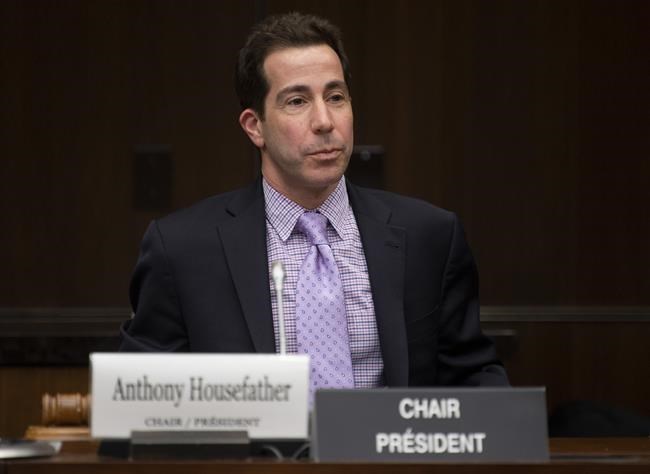OTTAWA — Two members of Parliament are joining forces with legislators in four other countries in an international effort to force web giants to curb the proliferation of anti-Semitic content online.
Liberal MP Anthony Housefather and Conservative MP Marty Morantz are part of a new task force that includes politicians from Australia, Israel, the United Kingdom, and the United States.
A report out of the U.K. this summer said online incidents of anti-Semitism were on the rise in that country, driven by conspiracy theories about Jews being responsible for the COVID-19 pandemic.
In Canada, advocacy group B'nai Brith has said anti-Semitic incidents are up overall, with an 11 per cent rise in online harassment that often advocates genocide.
But how different countries measure and define the problem is a barrier to convincing web companies to address it, said Housefather.
The point of the task force is to get like-minded countries to agree on how to define the problem, how to solve it, convince their respective legislatures to pass similar laws and then collectively pressure the companies to act, he said.
"If we can come up with something that's common to everybody, it will make life much easier for the providers to co-operate with us," he said.
The task force is getting underway just as the federal Liberals promised in last week's throne speech to take more action to curb online hate as part an effort to address systemic racism.
Housefather said the task force's initial work predates that pledge but he hopes it can support the government's own efforts.
Social media companies have been under sustained pressure to do more to address online hate, and give users better tools for reporting instances of it.
Earlier this year, Twitter began flagging some tweets from U.S. President Donald Trump for violating its policies, saying they included threats of harm against an identifiable group.
But, both Housefather and Morantz said, Twitter does nothing when the Iranian leader Ayatollah Ali Khamenei puts out tweets calling for the destruction of Israel or uses violent or potentially racist language to describe the state.
Twitter said earlier this year in response to criticism over that approach that Khamenei's remarks amounted to "foreign policy sabre-rattling."
Morantz said while the task force is focused on anti-Semitism, the work also applies more broadly.
"Hate against one group online is really a concern to all groups," Morantz said.
"We need to emphasize that if we can't protect one minority we can't protect any of them."
The Liberal government has repeatedly pledged to do more to combat hate speech online.
During the last election, they promised new regulations for social media platforms, including a requirement that they remove "illegal content, including hate speech, within 24 hours or face significant penalties."
Critics, including conservative media outlets like True North and The Rebel, have accused the Liberals of wanting to crack down on free speech.
Morantz said a distinction must be made between free speech and that which breaks existing criminal laws. The focus needs to be on the latter, he said.
In turn, he refused to comment on a fellow Tory MP who recently circulated a message on Twitter that was criticized for using an anti-Semitic trope.
In August, B.C. MP Kerry-Lynne Findlay share a video of Finance Minister Chrystia Freeland and liberal philanthropist George Soros, saying Canadians ought to be alarmed by their “closeness.”
Soros is often linked to anti-Semitic conspiracy theories. Findlay later took down the tweet and apologized for sharing content from what she described as a source that promotes "hateful conspiracy theories."
Housefather was among those who spoke out about Findlay's tweet. He said he accepts her apology, but the incident highlights the issue.
"People often innocently retweet something without understanding the implications of it," he said.
What needs to happen is for social media platforms to step up and figure out a way the flag the content, he said.
"If the media platform lets them know that, they can make a conscious decision whether or not they want to retweet it, knowing that it's been flagged as being anti-Semitic content or other types of racist, misogynistic, etc., content."
This report by The Canadian Press was first published October 1, 2020.
Stephanie Levitz, The Canadian Press




